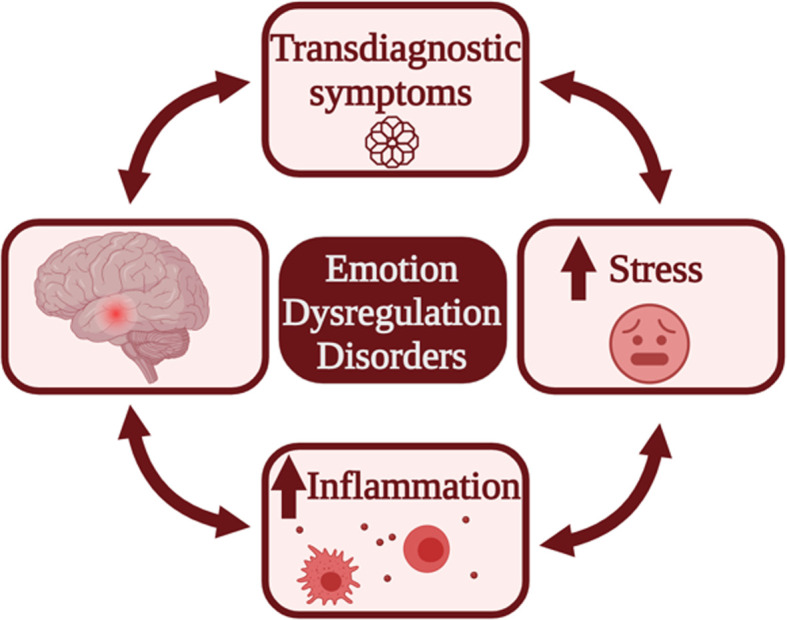Figure 2. Theoretical framework recapitulating the links between inflammation, stress, emotion regulation networks, and clinical symptoms (adapted from [250]).

Emotion dysregulation (ED) symptoms may lead to higher chronic stress and trauma, which are in turn associated with a proinflammatory state. Neurotoxic effects of inflammation can negatively impact the neural circuits of emotion regulation (ER), exacerbating symptoms. Thus, although the direction of potential causality between these elements remains to be ascertained, it appears likely that a vicious cycle perpetuating inflammation, central nervous system (CNS) dysfunction, chronic stress, and ED symptoms may exist. Upward red arrows indicate increases.
